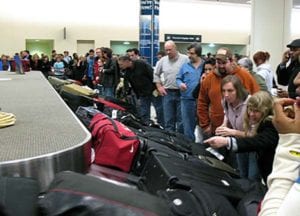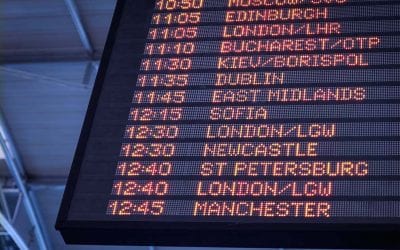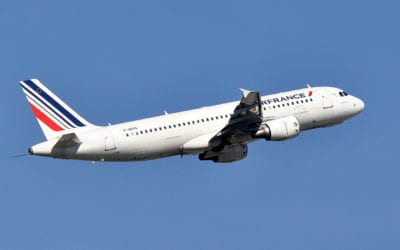Airline passenger service rules need better enforcement.

DOT mandates domestic lost/damaged/delayed luggage compensation to $3,500. Few travelers know the rule.
Airline passenger service rules need more strength and enforcement rather than less. The public needs help from DOT to keep the current program of regulations effective. Plus, we need some new rules.
This is the beginning of a litany of DOT sins against passengers festering. DOT can correct these airline customer service rule failures with a small dose of enforcement and rulemaking. Perhaps customer service will improve dramatically with a bit of attention to the public and airline passengers.
READ ALSO: Amtrak must deploy its Airo trainsets to the Northeast Corridor first
1. Families are sitting together — or should be.
This has been a mantra for passengers since the beginning of time. Seating families together has long been a priority of airlines — at least that is what they will say publicly until push comes to shove in today’s world of airline reservation fees and false airline seating maps that show most seats available only for elite fliers. The problem is so significant that Congress passed a law telling DOT to set up a system for families with children 13 years old and younger to be allowed to sit with their older family members. DOT has chosen to ignore these airline passenger service rules.
So, airlines today are telling families with children 13 and younger that they need to pay extra to be able to sit together. The issue is doubly problematic. Families have to purchase a more expensive class of service that allows seat reservations. Then the families need to purchase additional reservations to secure seats together if they are available.
Only last month, an airline agent claimed that a 9-year-old child is old enough to sit 10 rows away from her parents on an international flight. This is not right. It is clear that DOT needs to rein in the airlines and allow families to sit together without extra fees.
2. Unjustified fees.
No one likes fees. That’s clear. However, this airline customer service failure has gone unregulated for years. Passengers can understand the need to pay for checked baggage, but the charges make no sense. When the charges for handling the first piece of checked baggage is $25-$35, why is the second piece priced at $50 and more? Is there an extra cost to handle the extra piece of luggage? Or, should baggage fees be like mail fees where every piece costs the same based on some justified basis?
Many of these airline fees are unjustified. Change and cancellation fees have no relation to the actual costs incurred by the airlines. Change fees have been all but eliminated. But cancellation fees continue. We need control in the near-monopoly economic system that the government has allowed. Government mandate or transparent pricing is the only way to control runaway fees.
READ ALSO: Can you fight to win better airline customer service?
3. No punishment for IT failures
Another airline passenger service rule failure is DOT’s system for protecting passengers by airline reservation system failures. These massive computer systems are used to schedule airlines, get the crews in the right place during the day, stock jet fuel, make passenger reservations, and control the ever more complex airfare and fee structures. When the computer systems break down, everyone suffers, especially the passengers.
So far, many airlines treat information technology (IT) failures as Acts of God. They are not. These are human failures that are controlled by the airlines. It is not the fault of any passenger that the airlines have made their systems, fees, airfares, and schedules so complex that their systems fail regularly.
DOT needs to introduce an IT failure compensation program to passengers.
4. No requirement for delayed passengers’ compensation
In Europe, all airlines are penalized for not keeping to their published schedules. That same kind of airline passenger service rules system can operate here in the US. It is unfair and deceptive to issue a flight schedule and not follow it. When airlines cannot maintain their schedules, there should be penalties for the airlines. With penalties, passengers can then, at least, pay a portion of the fines imposed by other airlines for missed flights, missed tours, and pre-paid hotel reservations. Requiring airlines to follow the schedules they choose to create only protects passengers and leaves all of the operational decisions in the hands of the airlines.
This failure in airline customer service is one of the most egregious. When airlines once had a way to protect their passengers and move them from airline to airline in order to keep them moving, the system had some give and take. Passengers understood the system and were appreciative of the airlines for their help. Today, there is little cooperation between airlines. Now, delays from missed flights can take days, not hours, and passengers feel cheated by the airlines, both major and smaller low-cost carriers. They should.
5. Poor enforcement of laws and regulations
Any airline regulatory system is only as good as enforcing the rules. Every time that DOT completes its surprise inspection of airline customer service rules, they find that virtually every airline fails.
- Few airlines give written denied boarding compensation (bumping) rules. Passengers rarely receive rules when they are asked to give up their seats in the case of overbooking.
- Airline baggage claim personnel regularly tell passengers that high-value items packed in checked baggage are not insured against damage or theft. For international flights they are, but for domestic flights, they are not.
- Airlines rarely tell passengers they have domestic baggage compensation available for up to $3,500 when their luggage is delayed, damaged, or lost. (Make sure to save your receipts for “reasonable” expenditures.)
These are only the tip of the airline customer service failures when it comes to compensation by the airlines. After discovering these failures to follow regulations, enforcement is hollow. DOT assesses paltry fines. Fines are the equivalent of just over $1 compared to the average family income in America. It is ludicrous.
A dose of new regulations and the effective enforcement of current regulations would go a long way to improving airline customer service.

Charlie Leocha is the President of Travelers United. He has been working in Washington, DC, for the past 14 years with Congress, the Department of Transportation, and industry stakeholders on travel issues. He was the first consumer representative to the Advisory Committee for Aviation Consumer Protections appointed by the Secretary of Transportation from 2012 through 2018.



